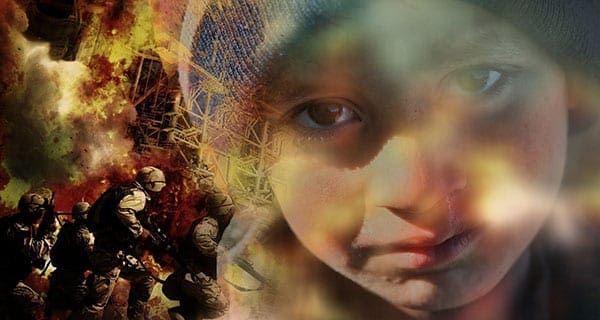 As hundreds of thousands of migrants flood Europe’s borders, some of us will recall Jean Raspail’s apocalyptic 1973 novel The Camp of the Saints. Fiercely controversial, Raspail’s story depicts an uninvited seaborne mass migration from the Third World to Europe, landing initially on the shores of the French Riviera. Unable or unwilling to turn it back, France, and subsequently Europe, succumbs to an accelerating inflow and is radically transformed forever.
As hundreds of thousands of migrants flood Europe’s borders, some of us will recall Jean Raspail’s apocalyptic 1973 novel The Camp of the Saints. Fiercely controversial, Raspail’s story depicts an uninvited seaborne mass migration from the Third World to Europe, landing initially on the shores of the French Riviera. Unable or unwilling to turn it back, France, and subsequently Europe, succumbs to an accelerating inflow and is radically transformed forever.
Now, let’s be clear. What’s happening today is a substantial distance from Raspail’s scenario. For one thing, many of the current migrants are war refugees who initially fled Syria for places like Turkey, and now want to move on to more promising destinations. And however imposing the scale is, it doesn’t yet come close to Raspail’s dimensions.
But there is a parallel. In The Camp of the Saints, the impending arrival of the migrant armada prompts intense debate within France. Many are horrified and want it repelled, while others – particularly churchmen, intellectuals and opinion leaders – want to put out the welcome mat. Although not identical, today’s debate has many of the same characteristics.
Essentially, it comes down to conflicting perceptions of who we are, or perhaps who we think we should be. And that conflict can be complicated, with individuals finding themselves torn between their compassionate impulse to help and their natural desire to maintain their own society as it is.
Of course, it’s a debate that isn’t necessarily an either/or proposition. While some countries want nothing to do with any of the migrants, in others the argument is about how many to take. And in our media-saturated environment, it’s the sort of argument that quickly becomes polarised.
Canada has no moral choice but to take refugees by Doug Firby
Personally, I think that reasonable people can arrive at different conclusions, and I can comfortably live with a fair range of them. But a couple of considerations are particularly important. If you like, they’re my red lines.
One is the need to differentiate between large-scale mass migration and limited small-scale movements. Whereas the latter can often be absorbed with relatively little impact to the host, the sheer weight of numbers means that the former is potentially transformative. And if the society from which it comes has major problems, the transformation may not be benign.
For instance, think about Iraq. The fatal illusion driving the 2003 American intervention was that Iraq’s problems were a function of an evil regime. Remove Saddam, so the theory went, and Iraq will be just like us.
It didn’t work out that way. Significant numbers of Iraqis may have wanted nothing more than to be a normal democracy, but many others had no such aspirations. As bad an actor as he was, Saddam didn’t exist in a vacuum, but rather had many supporters and sympathisers. Further, lots of his opponents didn’t really object in principle. Instead, they just wanted their turn as top dog so that they could be the ones putting the boot in.
If Iraq’s 36 million citizens were suddenly transported to Canada, these historical enmities and attitudes would come with them. We would, in effect, import Iraq’s problems.
After all, people’s identities aren’t instantly malleable, and if the numbers are large enough, there’s no pressure to adapt. And while a population movement of that scope is fanciful, it illustrates a point: Scale really does matter.
My other red line has to do with moral bullying. Finland – which Prime Minister Juha Sipila wants to change to “an open, linguistically and culturally international country” – is a good example.
While there’s nothing wrong with Sipila’s ambition, neither is there anything wrong with the position of the many Finns who prefer Finland the way it is. If a country already has many cultural groups, then obviously multi-culturalism is an imperative. But if it’s essentially mono-cultural – like Finland – there’s nothing racist or xenophobic about wanting to retain that national identity. Liking who you are and wanting to preserve the social experience and texture of your life doesn’t make you a bad person.
Matthew Fisher’s recent National Post report on Sweden’s open door asylum policy refers to a suburb of Malmo that’s now 80 percent Arabic, quoting a young Syrian woman who loves it because “it feels like the Middle East.” Alas, though, the Swedes in the story don’t share that enthusiasm.
Pat Murphy casts a history buff’s eye at the goings-on in our world. Never cynical – well perhaps a little bit.
The views, opinions and positions expressed by columnists and contributors are the author’s alone. They do not inherently or expressly reflect the views, opinions and/or positions of our publication.


